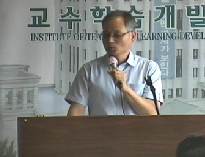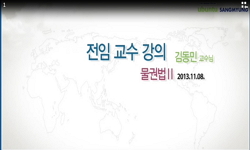칸트는 모든 유의 이성적 존재자는 “공동선으로서의 최고선”을 촉진하도록 사명지워져있다고 분명히 말하고, 영구평화를 “최고의 정치적 선”이자 “최고의 도덕적선”으로 간주했다. ...
http://chineseinput.net/에서 pinyin(병음)방식으로 중국어를 변환할 수 있습니다.
변환된 중국어를 복사하여 사용하시면 됩니다.
- 中文 을 입력하시려면 zhongwen을 입력하시고 space를누르시면됩니다.
- 北京 을 입력하시려면 beijing을 입력하시고 space를 누르시면 됩니다.
https://www.riss.kr/link?id=A101910398
- 저자
- 발행기관
- 학술지명
- 권호사항
-
발행연도
2016
-
작성언어
Korean
-
주제어
소유권 ; 생득권 ; 영구평화 ; 도덕공동체 ; 보편의지 ; 법철학 ; 칸트 ; property right ; innate right ; perpetual peace ; ethical community ; general will ; philosophy of law ; Kant
-
등재정보
KCI등재
-
자료형태
학술저널
-
수록면
149-170(22쪽)
-
KCI 피인용횟수
1
- 제공처
-
0
상세조회 -
0
다운로드
부가정보
국문 초록 (Abstract)
칸트는 모든 유의 이성적 존재자는 “공동선으로서의 최고선”을 촉진하도록 사명지워져있다고 분명히 말하고, 영구평화를 “최고의 정치적 선”이자 “최고의 도덕적선”으로 간주했다. 그리고 이 영구평화의 문제를 해결하기 위하여 ‘대의제 공화국’과 “덕법들에 따르는 보편적 공화국”이라는 체제를 구상했다. 칸트에 따르면, 이 두체제는 상호보완적이다. 영구평화는 인간의 내면적인 도덕적 개선 없이 정치적, 법적 수단만으로 실현될 수 없기 때문이다. 즉 대의제 공화국은 평화상태를 이끌어내기 위하여 강제법칙들을 통하여 구성원 상호 간의 비평화적인 마음씨들의 충돌을 조정하는 소극적 기능(“자유에 대한 방해 저지”)을 수행하는 반면, 덕법들에 따르는 보편적 공화국은 구성원들로 하여금 선한 원칙들의 승리를 위해 악한 원칙들에 대항하여 싸우게 하는 적극적 기능을 수행한다. 공동체의 가치문제는 국가 및 법질서의 목적에 대한 반성 없이는 해결의 실마리를 찾을 수 없다. 칸트는 국가 및 법질서의 목적이 각인(各人)의 생득적 권리인 자유의 실현이며, 또 각 구성원의 소유권 보장이라고 여겼다. 따라서 그는 법질서없이는 어떤 소유도 없고, 소유권 없이는 국가 안에서 완전한 자유 실현은 불가능하다고 주장한다. 이 점은 칸트에게 국가 안에서 자유를 실현하는데 필수적인 요건인 보편의지가 소유의 정당성에도 기초로 자리하고 있다는 사실을 파악하면 쉽게 이해될 수 있다. 소유는 보편의지의 전제 아래에서만 가능하고, 보편의지는 개개인의 자유 행사에서 비롯되므로, 소유는 생득적 권리인 자유를 상정하지 않으면 불가능하다. 소유에서 생득적 권리인 자유의 실행이 실현되기 때문에, 또 소유는 오직법질서라는 테두리 안에서만 가능하기 때문에, 각자는 모든 다른 사람에게 국가 법질서에 복종하도록 요구할 수 있다. 따라서 칸트에게 소유권과 국가 법질서는 동시에 성립하며, 소유를 존중할 의무와 국가로 진입할 의무가 함께 근거 지워진다.
다국어 초록 (Multilingual Abstract)
Kant represented that every species of rational beings is destined to the promotion of the hightest good as a good common to all, and regarded perpetual peace as “the highest political good” and “the highest moral good” as well. In oder to sol...
Kant represented that every species of rational beings is destined to the promotion of the hightest good as a good common to all, and regarded perpetual peace as “the highest political good” and “the highest moral good” as well. In oder to solve this matter of perpetual peace he conceived two ideas, namely a political system of the representative republic and a ethical community called “universal republic based on the laws of virtue". The two constitutions are complementary to each other, because according to Kant, the perpetual peace cannot be achieved solely by political and legal measures, without the moral improvement of human minds. In oder to bring forth a condition of peace the representative republic performs a passive function (“a hindering of a hindrance to freedom”) to arrange the conflict of unpeaceable dispositions among its members by means of coercive laws, whereas the universal republic based on the laws of virtue performs an active function allowing its members to fight against evil principles for victory of good ones. Without reflecting on the purpose of the state and its legal system man can hardly find a clue to solve a matter of values in the community. Kant considered that the purpose of the state and its legal system is realizing the freedom as innate right of every human being and ensuring the property right of each member as well. He therefore argued that without legal system there is no property, but without property rights would be also impossible the full realization of freedom in the state. This can be easily understood, only if man knows the fact that for Kant a general will ist a necessary condition for the realization of freedom in the state and for the legitimacy of property as well. Since property is only possible under the premise of a general will and since a general will results from the exercise of individual freedom, property would be impossible, unless assumed the innte right of freedom. Because the innate right to exercise the freedom is realized in the property and because property is possible only in the context of a legal system, everyone can require all others to submit to the legal system of the state. Therefore for Kant property rights and the legal system of the state are established at the same time, the obligations to respect for property is justified with the obligation to enter into a civil constitution.
참고문헌 (Reference)
1 정성관, "칸트 법철학의 몇가지 중요한 특징들" 한국칸트학회 (17) : 319-338, 2006
2 Sandel, Michael J., "정의란 무엇인가?" 김영사 2010
3 Kriele, "Wohlgeordnete Freiheit : Immanuel Kants Rechts- und Staatsphilosophie" 2007
4 Kant, I., "Königlich Preußischen Akademie der Wissenschaften Bd. VIII"
5 Kant, I., "Königlich Preußischen Akademie der Wissenschaften Bd. VIII"
6 Kant, I., "Königlich Preußischen Akademie der Wissenschaften Bd. VIII"
7 Kant, I., "Königlich Preußischen Akademie der Wissenschaften Bd. VII"
8 Kant, I., "Königlich Preußischen Akademie der Wissenschaften Bd. VI"
9 Kant, I., "Königlich Preußischen Akademie der Wissenschaften Bd. III"
10 Kant, I., "Königlich Preußischen Akademie der Wissenschaften Bd. VII"
1 정성관, "칸트 법철학의 몇가지 중요한 특징들" 한국칸트학회 (17) : 319-338, 2006
2 Sandel, Michael J., "정의란 무엇인가?" 김영사 2010
3 Kriele, "Wohlgeordnete Freiheit : Immanuel Kants Rechts- und Staatsphilosophie" 2007
4 Kant, I., "Königlich Preußischen Akademie der Wissenschaften Bd. VIII"
5 Kant, I., "Königlich Preußischen Akademie der Wissenschaften Bd. VIII"
6 Kant, I., "Königlich Preußischen Akademie der Wissenschaften Bd. VIII"
7 Kant, I., "Königlich Preußischen Akademie der Wissenschaften Bd. VII"
8 Kant, I., "Königlich Preußischen Akademie der Wissenschaften Bd. VI"
9 Kant, I., "Königlich Preußischen Akademie der Wissenschaften Bd. III"
10 Kant, I., "Königlich Preußischen Akademie der Wissenschaften Bd. VII"
11 Kant, I., "Königlich Preußischen Akademie der Wissenschaften Bd. VI" 1902
12 Kersting, W., "Kant über Recht" 2004
13 Kriele, "Einführung in die Staatslehre" 1994
14 Brandt, R., "Eigentumstheorien von Grotius bis Kant" 1974
15 Saage, R., "Eigentum, Staat und Gesellschaft bei Immanuel Kant" Nomos 1994
16 Röd, W., "Der Weg der Philosophie, Bd. II" Verlag C. H. Beck 1996
동일학술지(권/호) 다른 논문
-
- 한국칸트학회
- 김종국 ( Jong Gook Kim )
- 2016
- KCI등재
-
칸트 윤리학에서 보편적 법칙의 법식과 목적 자체의 법식은 동일한가?
- 한국칸트학회
- 문성학 ( Sung Hak Moon )
- 2016
- KCI등재
-
- 한국칸트학회
- 나종석 ( Jong Seok Na )
- 2016
- KCI등재
-
음악에 대한 취미판단의 특징에서 교화의 문제: 칸트의 『판단력 비판』 §53, 음악에 대한 부정적 평가로부터의 접근
- 한국칸트학회
- 양희진 ( Hee Jin Yang )
- 2016
- KCI등재
분석정보
인용정보 인용지수 설명보기
학술지 이력
| 연월일 | 이력구분 | 이력상세 | 등재구분 |
|---|---|---|---|
| 2027 | 평가예정 | 재인증평가 신청대상 (재인증) | |
| 2021-01-01 | 평가 | 등재학술지 유지 (재인증) |  |
| 2018-01-01 | 평가 | 등재학술지 유지 (등재유지) |  |
| 2015-01-01 | 평가 | 등재학술지 유지 (등재유지) |  |
| 2011-01-01 | 평가 | 등재학술지 유지 (등재유지) |  |
| 2009-01-01 | 평가 | 등재학술지 유지 (등재유지) |  |
| 2006-01-01 | 평가 | 등재학술지 선정 (등재후보2차) |  |
| 2005-01-01 | 평가 | 등재후보 1차 PASS (등재후보1차) |  |
| 2004-01-01 | 평가 | 등재후보학술지 유지 (등재후보1차) |  |
| 2003-01-01 | 평가 | 등재후보학술지 선정 (신규평가) |  |
학술지 인용정보
| 기준연도 | WOS-KCI 통합IF(2년) | KCIF(2년) | KCIF(3년) |
|---|---|---|---|
| 2016 | 0.35 | 0.35 | 0.52 |
| KCIF(4년) | KCIF(5년) | 중심성지수(3년) | 즉시성지수 |
| 0.47 | 0.59 | 1.734 | 0.13 |





 KISS
KISS






